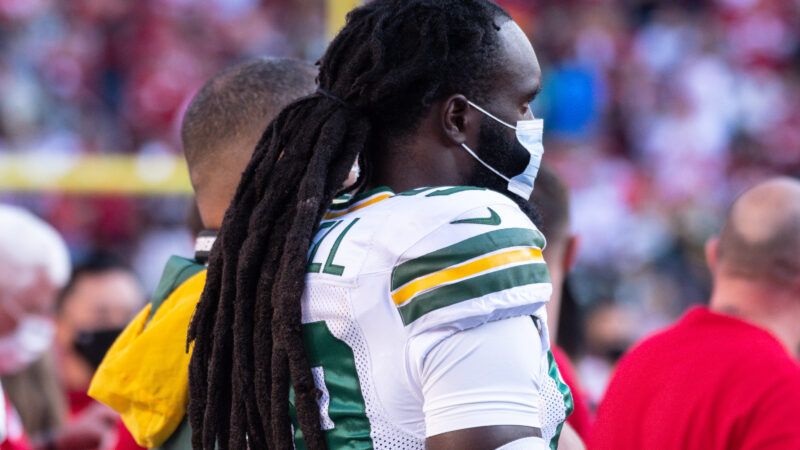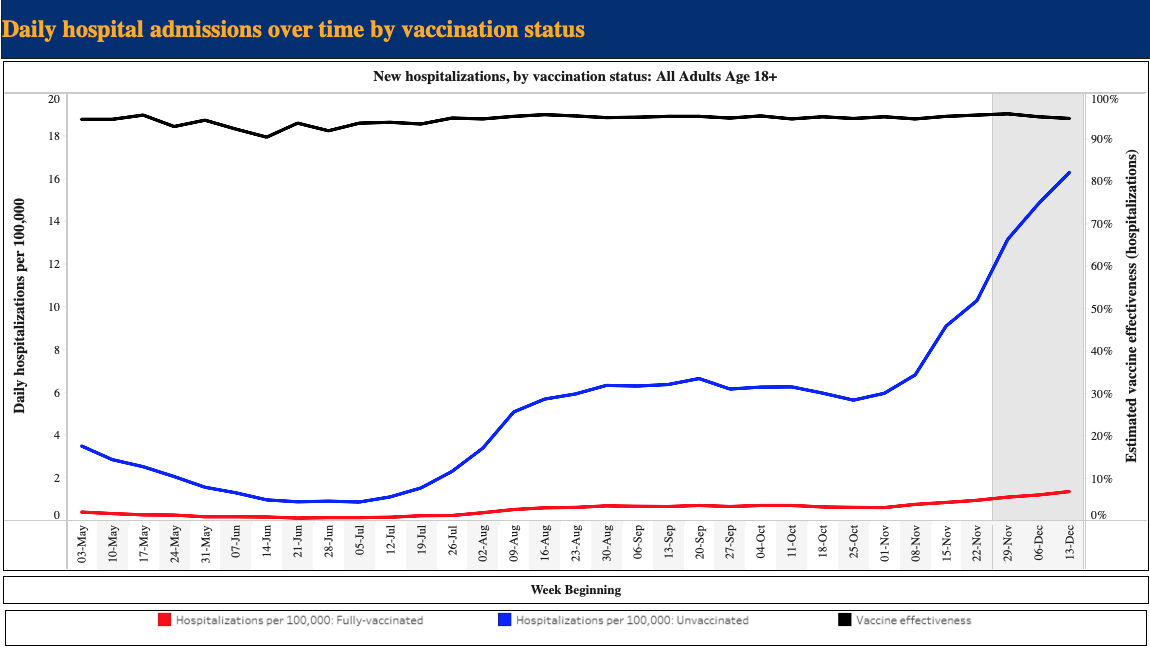What Rapidly Rising COVID-19 Infections Among NFL Players May Mean for the Rest of Us
As the NFL goes, so goes the nation?

Since December 13, the NFL reports that 476 of the 1,696 players on its active rosters—a bit more than 28 percent—have tested positive for COVID-19. That compares to 428 players who went on the COVID reserve list for the entirety of last year's regular season.
This is happening even though 94.6 percent of NFL players (average age: 26 years) and nearly 100 percent of league staffers are fully vaccinated. On December 13, the NFL required that coaches, front-office staff, and team personnel get COVID-19 booster shots by December 27. The NFL Players Association, the labor union for NFL players, is still negotiating boosters for team members.
"With such a highly vaccinated population, the NFL environment is not comparable to anywhere else in society," notes the NFL. This is indeed true. So far, only 61.8 percent of the U.S. population has been fully vaccinated and only about 30 percent of the fully vaccinated have gotten booster shots.
The NFL is also different in that players work in extended close contact in locker rooms, practice fields, and stadiums. Nevertheless, the ease with which the omicron variant appears to infect healthy, fully vaccinated young adults suggests that the omicron variant will spread quickly and widely through the U.S. population in the next month or so. Although it reflects the Christmas holiday testing backlog, on Monday the tally of diagnosed COVID-19 daily cases rose to about 540,000, which is more than 200,000 above the previous daily high reached last January.
First, the good news is that about two-thirds of the NFL players who test positive for COVID-19 are asymptomatic and most of the others experience mild symptoms. Taking account of his possible conflicts of interest, NFL Chief Medical Officer Allen Sills declared just before Christmas that the league had not seen verifiable transmission of the virus by asymptomatic players.
Second, there is some further good news for those of us who have gotten our booster shots. A third inoculation of either the Pfizer/BioNTech or Moderna vaccines is initially 60 percent effective at preventing symptomatic illness from the omicron variant (although the protection does appear to drop to about 40 percent after three months).
Third, two doses of the Pfizer/BioNTech and Moderna vaccines remain 30–40 percent effective against omicron variant infection and around 70 percent effective against hospitalization. Since New York is once again at the nation's epicenter of the COVID-19 pandemic, let's take a look at the most recent data with respect to vaccine effectiveness and hospitalization trends between vaccinated and unvaccinated New Yorkers. In the week ending on December 19, 2021, unvaccinated people were 12 times more likely to be hospitalized for COVID-19 infections than were vaccinated individuals. Vaccination remained 95 percent effective at preventing hospitalization.

Keeping in mind the manifold deficiencies of epidemiological modeling, researchers at the Institute for Health Metrics and Evaluation at the University of Washington School of Medicine forecast that while as many as 140 million Americans may eventually be infected by the omicron variant, more than 90 percent of them may never show symptoms.
″[Omicron] is going to rip right through the population," said Columbia University virologist David Ho in a CNBC interview last week. "Those who are vaccinated and boosted are largely going to do OK, even if infected. Those who are vaccinated and not boosted probably will have it slightly worse. But I really fear for those who are not vaccinated."


Show Comments (55)